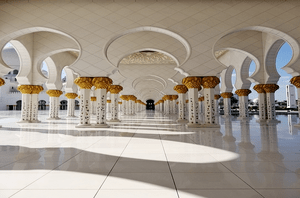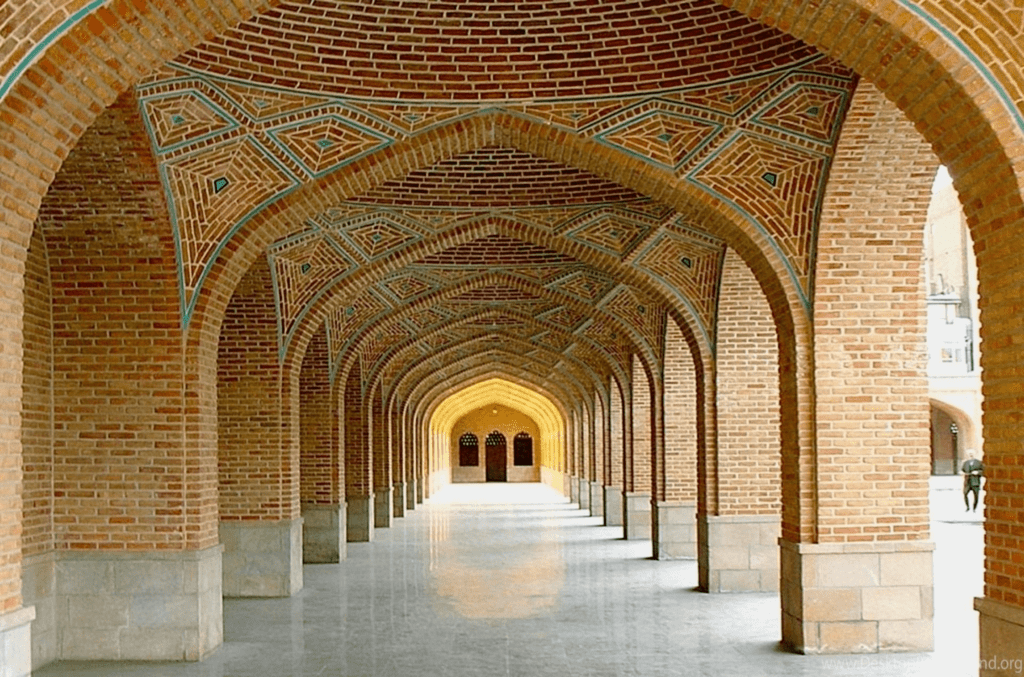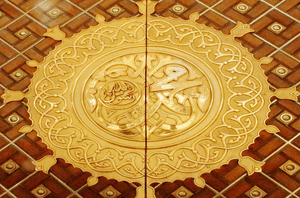Following the completion of the opening duʿā’, you will proceed on to seeking the protection of Allah from Shayṭān.
أَعُوْذُ بِاللهِ مِنَ الشَّيْطَانِ الرَّجِيْمِ
I seek protection in Allah from the rejected Shayṭān.
أَعُوْذُ: I take refuge, safeguard myself, take precaution, and I am careful. عَاذَ means to flee from that which you fear will harm you to that which will protect you from it.
Istiʿādhah (seeking protection) is essentially an act of the heart. When seeking protection with Allah, you are: (1) throwing yourself in front of Him, displaying your need of Him, and (2) submitting and humbling yourself in front of Him.
Istiʿādhah also acts as an acknowledgement of Allah’s ultimate power, and the human being’s weakness and inability to combat the unseen enemy, Shayṭān.
Ṣalāh is Shayṭān’s battlefield. No other situation enrages and annoys Shayṭān more than ṣalāh. First, Shayṭān will try to make you miss your ṣalāh. If he fails, he will try to make you delay it as much as possible. Again, if he fails, he will try to dissuade you from your sunnah and nafl prayers. If he still fails to deter you, he will come to you in your ṣalāh and try to ruin it with his constant whispers.
Be vigilant and constantly guard your ṣalāh, for Shayṭān is a thief who wants to ‘steal’ from your ṣalāh until you have nothing left in it. Shayṭān is an evil enemy. His invisibility makes him even more deadly. Because we cannot see him, we forget about him. In an increasingly material world, when we have a problem, we tend to look for physical causes. It would not be considered ‘intellectual’ or ‘scientific’ to blame Shayṭān and his cronies. Although he is not always the culprit, Shayṭan is constantly inflicting his evil on the children of Ādam. He comes and goes. He is described in the Qur’ān as ‘khannās’: the one who retreats and comes back. He always lurks about to inflict maximum damage wherever possible.
Shayṭān will especially try his best to prevent you from reciting Qur’ān with reflection (tadabbur). This is because reflecting on the Qur’ān gives life to the heart, and is the secret of worldly and heavenly bliss.
Shayṭān rages with envy. The angels prostrated to Ādam in obedience to Allah’s command, whilst he refused and was thrown out of Paradise. Up until today, he tries his utmost to prevent the sons of Ādam from prostrating. When you understand his envy and his tenacity in pursuing you, remember that you cannot defeat him by yourself: you need his and your Master, Allah (ʿazza wa jall), on your side.
It is for this reason that Ibn Taymiyyah (raḥimahullāh) once told his student, Ibn al-Qayyim (raḥimahullāh), “If a shepherd-dog attacks you, don’t bother fighting him back. Instead seek the help of the shepherd because he will push the dog away from you and will protect you from him.” Thus, the protection of Allah (ʿazza wa jall) – the All-Powerful (al-Qawiyy), the Guardian (al-Ḥafīẓ) – is our most effective weapon to defeat Shayṭān.
You may also choose to recite the slightly longer form of the istiʿādhah:
أَعُوْذُ بِاللّٰهِ السَّمِيْعِ الْعَلِيْمِ مِنَ الشَّيْطَانِ الرَّجِيْمِ ، مِنْ هَمْزِهِ وَنَفْخِهِ وَنَفْثِهِ
I seek protection in Allah, the All-Hearing and All-Knowing from the rejected Shaytān; from his promptings (inciting madness), his blowing (of pride in the hearts) and his obscene poetry. (Aḥmad).
Basmalah
بِسْمِ اللهِ الرَّحْمَـٰنِ الرَّحِيْمِ
In the Name of Allah, the All-Merciful, the Very Merciful.
You start by asking for the help of Allah (ʿazza wa jall). Through this, you are expressing your servitude to Him. By uttering His Name, you are also asking Him to bless you in all that you do.
بِسْمِ اللهِ: By stating ‘In the Name of Allah’ you are saying ‘I begin with every Name that belongs to Him.’ This includes all of His Most Beautiful and Perfect Names, and you are asking Him through all of His Names. By saying bismillāh, you are acknowledging His rubūbiyyah and ulūhiyyah (Oneness in His Lordship and sole right to being worshipped).
اللهِ: The only One deserving of being singled out for worship due to His Perfect Godly Attributes. Many scholars have regarded this Name to be ‘the Greatest Name of Allah’. It is a comprehensive name which includes all of His Names. It can only be used for Him.
الرَّحْمَـٰنِ الرَّحِيْمِ : The All-Merciful, The Very Merciful.
Allah (ʿazza wa jall) is an Extremely Merciful Lord. Allah (ʿazza wa jall) sustains us, but He does not do so because He needs us; rather, He sustains us out of His mercy. His Lordship is characterised by mercy and justice, and not oppression. Even His punishment arises from pure justice.
Both the words of this āyah – al-Raḥmān and al-Raḥīm – originate from the word raḥimah. Raḥimah can be understood as mercy, compassion and tenderness.
What is the difference between al-Raḥmān and al-Raḥīm?
Al-Raḥmān is a Name which encompasses the mercy Allah shows to all of His creation. However, al-Raḥīm is a specific attribute that is exclusive to the believers, both in this world and in the hereafter. The form of raḥmah He extends to the believers – particularly to His friends (awliyā’) – differs from His general mercy which He extends to all of His creation.
Al-Raḥmān can also mean the one who is extremely merciful, whereas al-Raḥim is the one who is permanently merciful. Together, these Names describe Allah (ʿazza wa jall) as extremely merciful, all the time.
Although the scholars have also mentioned other differences, it is important to remember that both Names encompass all aspects and dimensions of mercy.
The mercy of Allah knows no bounds. He said, “My mercy encompasses everything” (7:156). The Messenger of Allah ﷺ said that Allah said, “Indeed My mercy has preceded My anger”(Muslim).
Every blessing we have stems from His mercy. We were created through His mercy; the Messengers and the Books were sent down to guide us towards the truth through His mercy and Paradise was created through His mercy.
It is because of His mercy that we are invited to stand before Him in salah, humbling ourselves, pleading with Him, praising Him and talking to Him. It is because of His mercy that – through worshipping him – we become more aware of and closer to Him.
If we want to be recipients of Allah’s mercy, we must be merciful to His creation, as the Prophet ﷺ said, “Have mercy on those who are on the earth, and the One who is in the Heaven will have mercy on you” (Tirmidhī). Just as Allah (ʿazza wa jall) nourishes us with love and mercy, we should nurture ourselves and those under our care with love and mercy.






